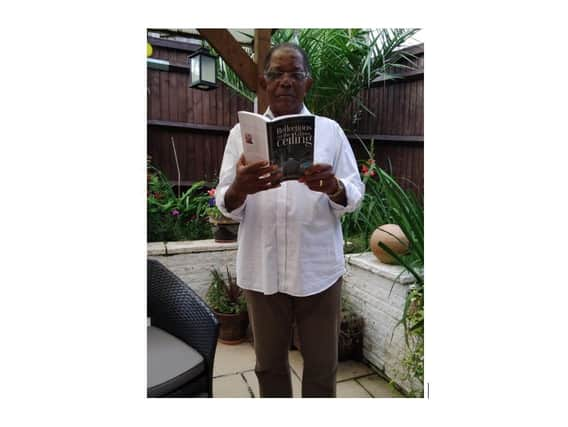Hastings: "being a visible minority in a predominantly white organisation"


It also reveals his personal and professional strategy for dealing with and surviving racism. Reflections on the Glass Ceiling is published by Mereo Books at £10 pounds, available from Mereo Books, Amazon, Barnes and Noble, Google Books, Waterstones, W H Smith.
James, aged 74, said: “My ideas and the planning behind Reflections on the Glass Ceiling came in two overlapping stages.
Advertisement
Hide AdAdvertisement
Hide Ad“The first stage began in 1981 at the start of my social work journey in Hastings and is my story and experiences of what it was like in those days, being a visible minority in a predominantly white organisation and having to deal with assumptions and stereotypes about my race and capabilities.
“I managed to survive those early years and was determined I wanted to advance my career. This is where the second stage begins and focuses on the invisible barriers I would encounter. Hence my reference to the glass ceiling.
“Both stages required planning and having to keep records of events and how I interpreted and dealt with them. This was and continues to generate mixed emotions for me whenever I read my notes and records relating to those experiences.
“Early in the planning stages and in identifying a title for the book, it was important to incorporate something which also reflected my identity and origin as a Liberian social worker in England.
Advertisement
Hide AdAdvertisement
Hide Ad“Early chapters in the book will gave the reader some insight into my origin. Liberia is a unique West African country with a history dating back to the resettlement of freed black American slaves. It was important to me to let my audience know what my life was like in Liberia and the events which led me to seek a new life in Hastings.
“My experiences were stressful particularly in having to relive and recall them in writing and re-editing my book. A positive and significant outcome resulting from this is that they revealed my personal and professional strategy for dealing with and surviving racism. This is what I want to share with my audience because I feel they could learn from my experiences.
“I have always enjoyed writing and was inspired as a teenager by James Baldwin, the American author. Although the experiences and my reflections were stressful, I enjoyed writing the book. I also strongly feel that my book title is probably more significant today. I did spend a considerable amount of time trying to decide on an audience for my book and who would be most inspired by it. In the end I concluded that my appeal should be on the general public.
“In our current social and political climate and the Black Lives Matter movement, this book would be particularly useful to statutory organisations in their planning, recruitment and delivery of services to all sectors of our community.
Advertisement
Hide AdAdvertisement
Hide Ad“The process of recording and keeping records to write my book began in the early stage of my social work career journey in 1981. However the desire and process of converting my records and recordings into a book occurred between 2013-2014 when I was nearing the end of my career journey and therefore in a better position to reflect and make more objective interpretation of the events and the invisible barriers that had shaped my 26 years career with East Sussex.
“At present it is a stand-alone publication. However, while at university studying for my masters and researching for a doctorate in mental-health social work, I was particularly interested in mental health, culture and ethnicity and did a lot of research into that field. I haven’t ruled out updating and translating some of this research work into publication.”